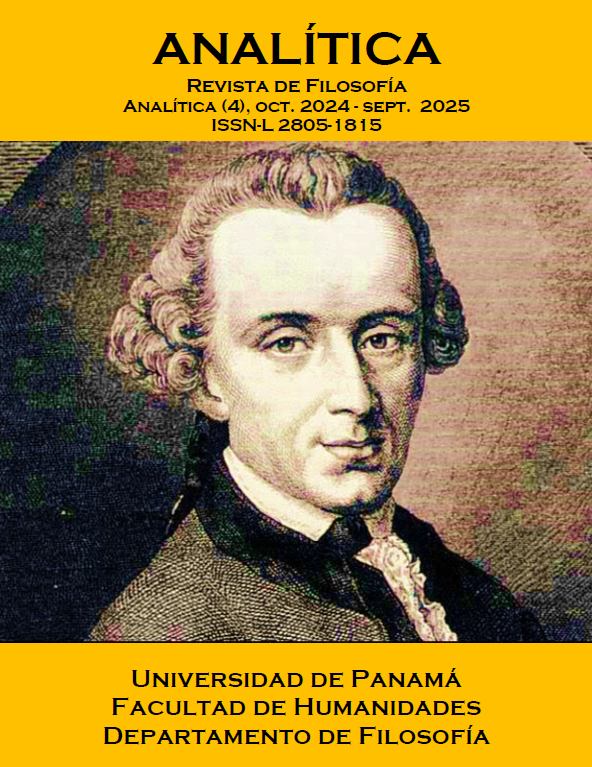

Copyright (c) 2024 Analítica

This work is licensed under a Creative Commons Attribution-NonCommercial-ShareAlike 4.0 International License.
Abstract: this essay investigates why we intuit and do mathematics from the perspective of Kant's Critique of Pure Reason, focusing on The Discipline of Pure Reason in its Dogmatic Use. It examines how the pure intuitions of space and time provide an essential framework for the construction of mathematical concepts, ensuring their necessity and universality. Although Kant argues that these intuitions are necessary conditions, we argue that it is the development and formalization of mathematical language that truly concretizes and objectifies these intuitions. Additionally, it analyses how philosophy, by changing its method, can address more abstract concepts without suppressing pure intuitions. Finally, the close relationship between pure intuitions and mathematical construction allows us to visualize a framework of understanding between the cognizant subject and mathematical calculation. This framework acknowledges the possibility that any human being, who inherently possesses these intuitions, can construct mathematical concepts.